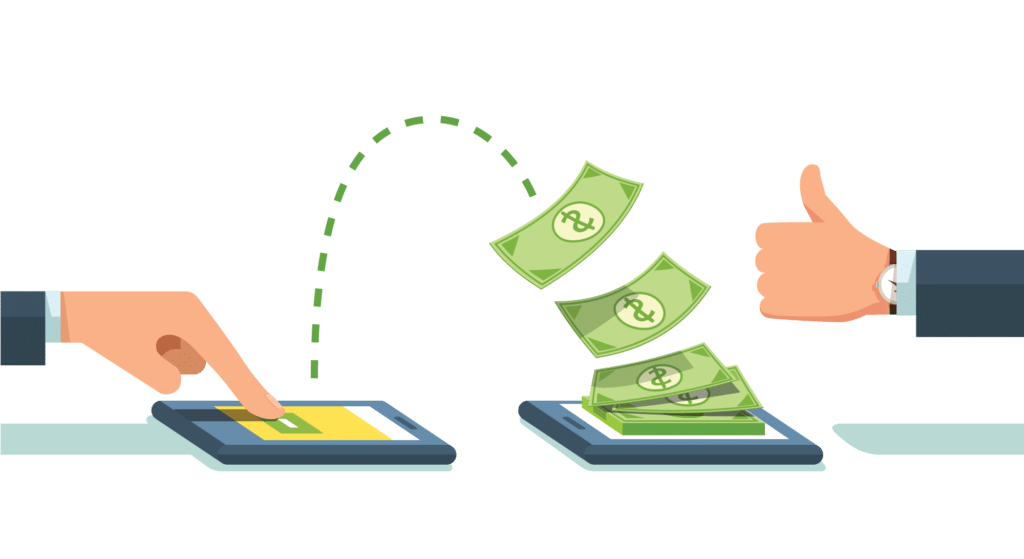Estimated reading time: 7 minutes
The debt collection process involves many different steps. Before you can collect on a debt, you need to locate debtors, manage collections accounts, contact the debtors, gather consumer or business information for account monitoring, and more. Handling all these moving pieces can be challenging for even the most experienced debt collectors. That’s why it’s important to capitalize on credit collection tools and techniques that make the process easier.
When you build a toolbox of debt collection tools and techniques to streamline your collections process, you can maximize your collections strategy and recover more debt. From skip tracing tools to debt management and consumer data, here are 4 of the best debt collection tools and techniques for better debt collection.
Get the best debt collection tools for skip tracing
Every collections firm needs to locate debtors in order to collect debts, even more famous debt collectors. But when a debtor has “skipped town” or isn’t living at the address you have on file, locating that person is significantly more difficult. In these situations, collections firms use skip tracing and debt collection tracing.
So what is skip tracing for collections? Skip tracing is when collections agencies use a variety of tools to locate a debtor who is living elsewhere that’s an unknown address. Whether you’re trying to find a debtor who is on the run or one with outdated address records, you can use a public and private records database for skip tracing. Many agencies emphasize skip tracing for locating people as one of their most effective debt collection techniques.
With the best debt collection tools in a public and private records database, you can not only gather current addresses but also search address history. This can help you make educated guesses as to where a debtor may be moving to avoid contact. You could also use utility listings data and other alternative data sources to help fill in missing holes and get more accurate data than credit header data. You can also use a people search to find relatives and business associates, allowing you to build a web of connections and gather more information about the debtor’s possible whereabouts.
- To skip trace a particularly hard-to-find debtor, collectors need the best debt collection tracing tools available.
- A public and private records database can provide valuable information for skip tracing, like current location and address history, as well as names of relatives and associates.
- You can also search utility listings data to get up-to-date address and contact information pulled directly from utility companies, including phone, gas, bill, electric, and more.
Use batch skip tracing in your debt collection tools and techniques
Many collections agencies, particularly larger ones, need to skip trace high volumes of accounts. But no one wants to repeatedly perform manual searches. So how can you cut down the time it takes to skip trace that many debtors? Effective debt collectors employ batch skip tracing. to locate a large number of debtors faster and easier than manually and individually in real time..
A public and private records database can help you perform batch skip tracing by allowing you to batch process high-volume searches at once. Batch processing addresses and contact information helps batch skip trace difficult-to-find individuals and recover more debt. Learn more about why your collection agency needs batch processing.
- Batch skip tracing is the process of locating multiple people all at one time.
- With batch skip tracing tools in a public and private records database, you can batch search large numbers of debtors and get lists of skip tracing information all at once.
Batch skip tracing helps you save time and money performing individual searches, allowing you to locate more debtors, collect on more accounts, and bring in more profit.

Streamline collections with a debt management and collections system
Debt collectors need to segment accounts, contact debtors, and collect payments. Manually handling all these tasks can be time-consuming, inefficient, and costly. Rather than trying to track and do everything on your own, collections management software can quickly automate this time-consuming task.
Collections management software helps collection agencies manage their collections and automate routine tasks for more efficient and effective collections processes. For example, you can use this software to automate daily workflows, track payments, and contact debtors. When you pair collections management software with a public and private records database, you’ll be able to quickly collect the data you need and automate the tasks that follow. This allows you to focus your resources on high-priority accounts with a higher probability of recovery.
- Collections management software also helps debtors with the administrative side of collections, like processing payments and making phone calls.
- Rather than using a variety of different tools to perform each task, you can use collections management software to manage each step in one centralized platform making it easier for you and the debtors.
- Automating and managing certain tasks with collections management software solutions helps ensure nothing falls off your plate and frees up time for more important and valuable tasks.
Access debt collection tools with powerful consumer data
How can you collect on accounts efficiently if you don’t know enough about the individuals behind the accounts? You need to be sure you’re prioritizing the right accounts, contacting the right people, and implementing the right collections strategy for specific accounts. To maintain an accurate picture of your debtors, you can use the debt collection tools and consumer data provided in a public and private records database.
With a public and private records database, you can perform a people search to gather current phone numbers, emails, addresses, relatives, and associates for better skip tracing and right-party contact. You can also gather data on bankruptcy records and deceased records to quickly scrub uncollectible accounts and focus your energy on pursuing accounts that will bring in profits. With access to the best consumer data, you’ll get a clear insight into who your customers are and how to collect them in the best way possible.
- If data about a consumer changes, you need to know right away to update their profile and take the necessary next steps for effective debt collections.
- To stay up to date on debtors, you can use a records database that pulls data from a variety of sources to provide the most accurate and current information available.
- With access to up-to-date data including addresses, contact information, and debt records, you’ll be able to determine the most debt collection effective for each account
How to improve debt collection skills
Whether you’re a fairly new agency or one that’s been in business for many years, refreshing and improving debt collection skills can benefit your company, your customers, and their debtors. Some suggestions for successful debt collection:
- Use good listening skills when speaking with debtors. Speak but also listen to their concerns and let them tell their story. Be polite and work with them to come to a reasonable payment option that benefits both parties.
- Prepare prior to contacting a debtor. Review and understand everything about that customer, including contracts, invoices, and other information that allows you to speak knowledgeably during the call. Keep it professional but personable.
- Check all the facts prior to the call. Be careful not to assume anything, and make sure that it is in fact an unpaid debt and not a mistake somewhere else. Speak professionally but cautiously. Alienating the customer could jeopardize future business with them once the case is resolved.
- Take notes and document everything in your CRM or collection tracking software. This makes it easier to reference later. Continue to add and update your records with each contact.
- Always keep a pleasant and friendly tone. Whether a consumer or business debt, most people aren’t happy about speaking with a collection agency. Professional empathy is important here. If the customer becomes agitated, suggest a better time to call them back.
Using bill collection techniques based on research and data can help improve success and revenue. Every debt collection tip & technique starts with having the most current information. A successful debt recovery reading is a balance between maintaining a customer relationship and assessing financial rights. These debt collection tips and tools start with the most recent data available. Tracers can give you the freshest and most current data on debtors, companies, and other related information.
Ready to add searching a public and private records database to your debt collection tools and techniques? Get started with Tracers today.

